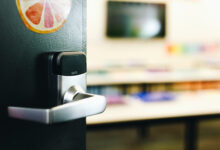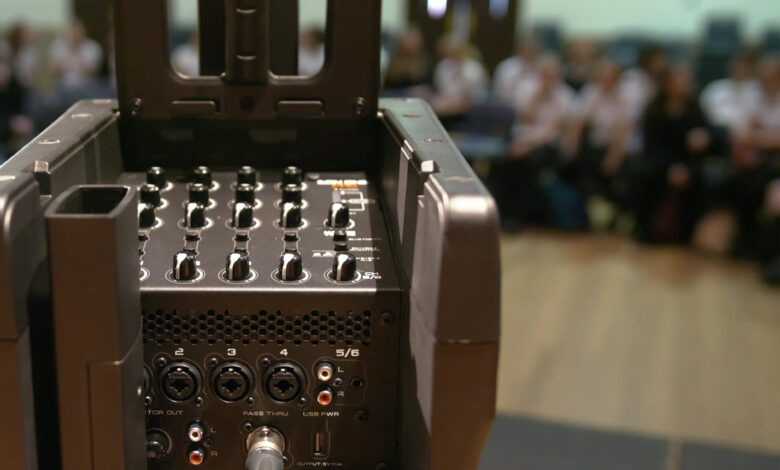
When deciding on budgets and key purchases to streamline school operations, it’s important to note that IP paging and PA systems have moved on from the classic brass bell that used to signal break times.
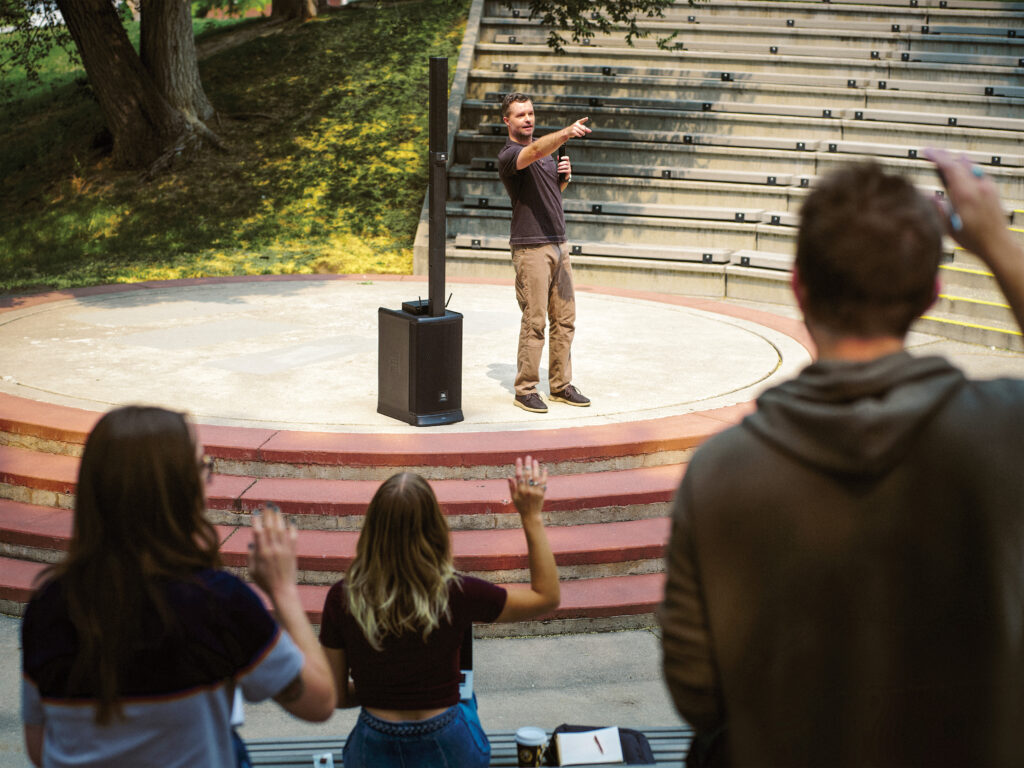
In fact, IP paging and PA systems have a range of new functions that boost security, enable creative use of speakers for school-wide events and competitions, more efficient communication between classroom teachers and school administrators, emergency messaging, and more.
Yet, few school staff seem to know about these innovative features and technologies.
IP Paging and PA system recommendations for schools: Industry experts sound-off
Tony Edwards, Director of Sound Choice Pro Audio, advised us that:
“The new technology currently available with IP paging systems is a real game changer for schools. No longer is the school bell just a bell sound. For example, playing a song in te reo Māori during Māori Language week.
“Some of the main features of the new IP Paging systems is the ability for individual classrooms to play their own music through the system speakers.
A teacher can play the audio from their laptop and if a paging announcement is made, the laptop audio will mute and continue once the announcement ends.
“This saves the school money as there is no duplication of equipment in the classroom. It is also possible for school admin other staff member to listen in on a classroom if a teacher has to leave the room briefly. Intercom links back to the school admin desk or main office are becoming popular too, as teachers can call and have two-way conversations.
“Unfortunately, schools are unaware of a lot of the features now available, I get a lot of feedback from schools saying that they wished they had known more about the features and costs savings that IP paging systems can offer. The schools get limited budgets, so it makes sense not to have to spend money on different standalone systems that are not integrated with each other.
One of the biggest advantages of an IP-based system is this scalability; you can add new zones, additional speakers, input panels, intercoms, etc., by simply having a spare data port so that the system is future-proofed for years to come.
Schools’ top considerations when installing or upgrading IP paging and PA systems should be clarity around what you need, according to Edwards Sound representative, Jonathan Neil: “Don’t get sold add-ons that are not useful.
“While there are a lot of add-ons, apps, and automation available, my advice is usually to keep it simple.
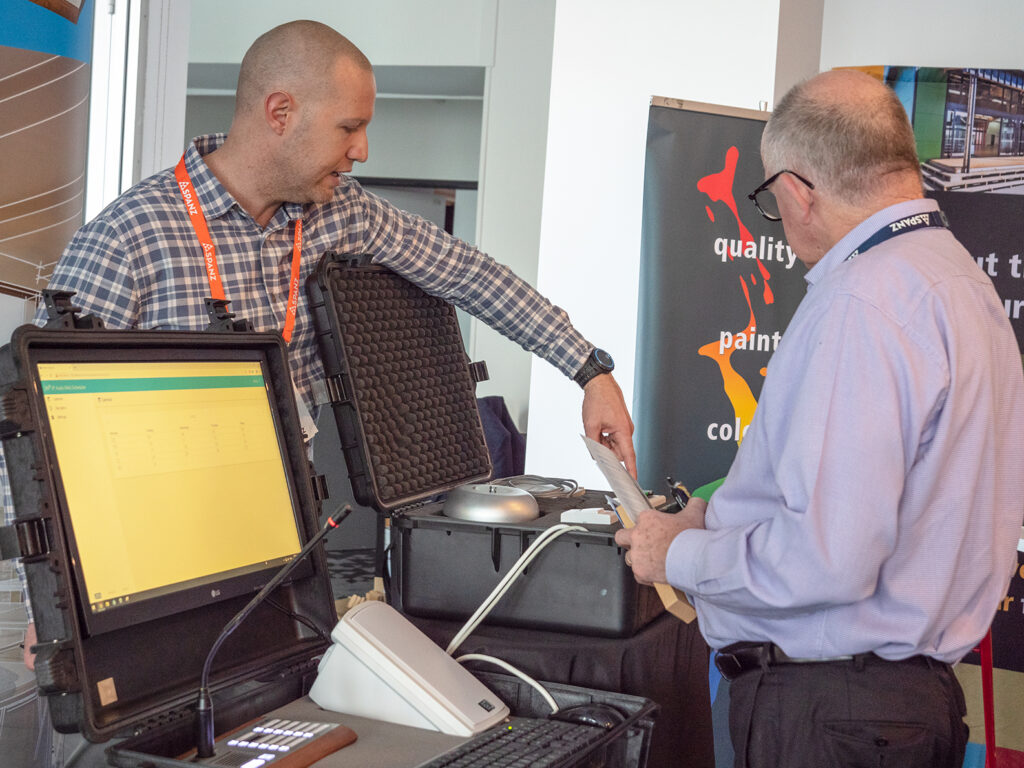
“Keep the paging system for what it is for (housekeeping, emergencies, and the bell) rather than providing access to many users and connecting additional equipment.
While you can change the bell sound for any piece of music and allow for some creativity, I suggest keeping the piece short (10 seconds, not three minutes!), and don’t change it too often.
“Keep the bass under control too as the speakers used for paging and bell systems are designed to provide the best clarity in vocal frequencies. For instance, nightclubs use very different speakers for bass!
“The equipment interface is robust and user access can be controlled, but if it is configured to allow children to run a radio station at lunchtime or other ad-hoc uses there is the possibility of someone accidentally giving that music priority over the lockdown or evacuation functions.”
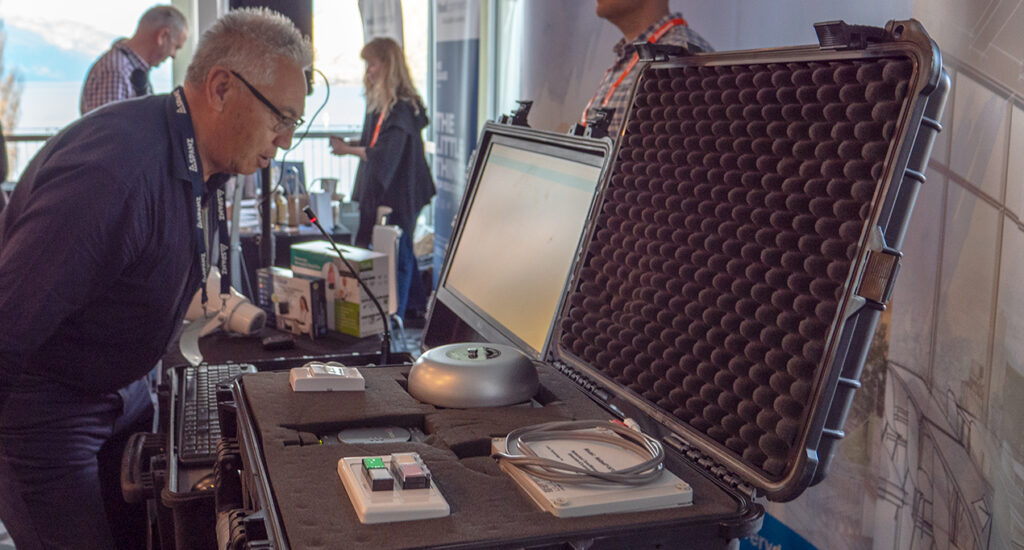
“It can be made harder to do this by controlling logins and who has access to make changes, but it’s a risk—buy them a small DJ set for the quad instead.”
He added: “One use that is often requested is connection to the fire alarm in addition to the lockdown and evacuation messages. This is possible but your fire alarm is a stand-alone system with very strict rules around maintenance and performance. The paging system can be a secondary warning and play the evacuation messages, but your fire alarm must stand alone and not rely on the paging system at all.”
Voicepro’s Technical Service Manager, Simon Gillett suggested schools first consider “something that is future proof and easy to maintain”.
“The school admin team should be able to self admin most of the features they would need by way of a website that can be accessed from any school admin computer.”
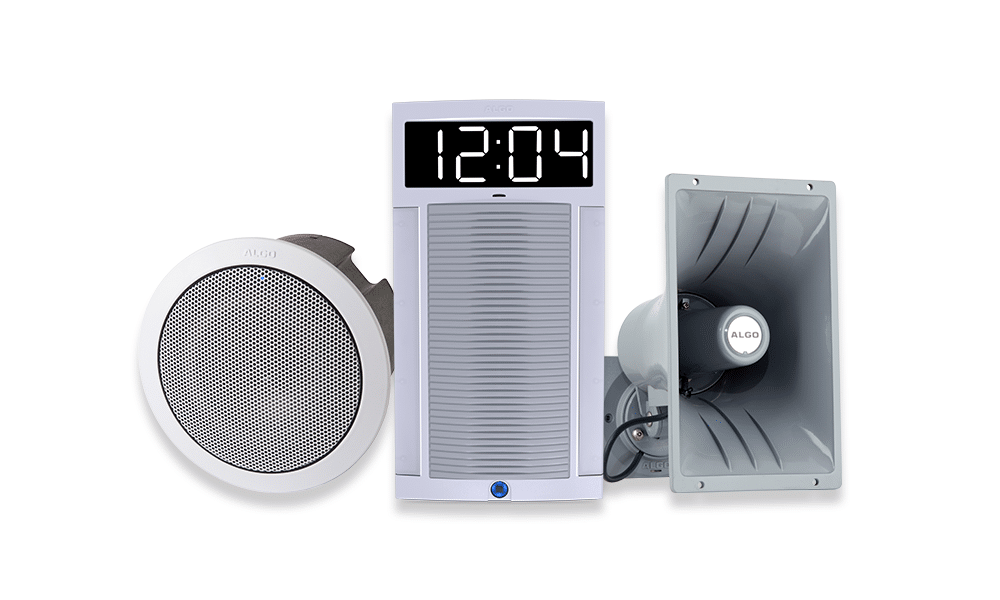
In terms of functionality: “More schools want to administer complex bell and PA solutions in-house. The beauty of most solutions these days is they have user friendly options for changing bell times, schedules, alert sounds, speaker volumes, and classroom zones.
“So, there’s no need for a specific server which is complicated to access, difficult to program and can often crash with windows updates or IT network changes so if the school going into lockdown updates can be updated from anywhere not from one microphone or PA desk phone stuck in reception.”
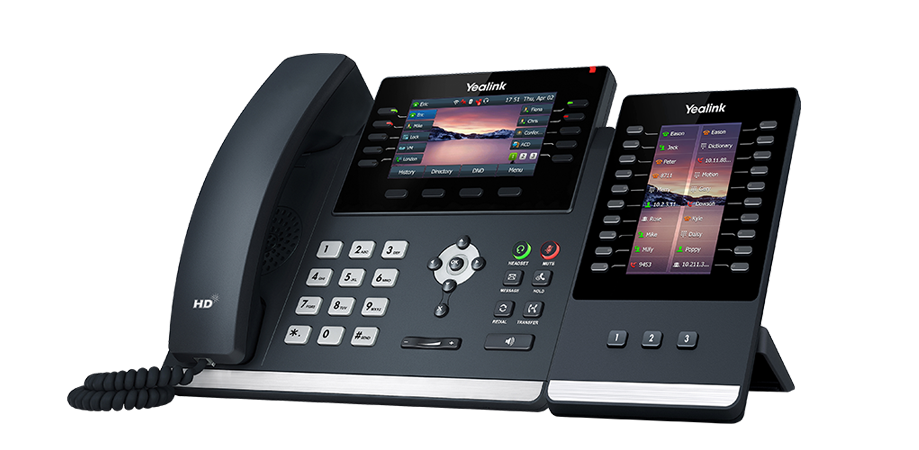
Other new features include “playing music throughout the school during an opening day, having different bell schedules for each day of the week, integrating into CCTV/security systems to set off a school wide message warning intruders to leave the property, and full integration into either existing phone systems”.
“Each PA speaker unit can have everything it needs built-in, like volume controls, amplifier, and zone programming so if one classroom needs renovating you can simply unplug the speaker out of the way and plug it back in again or reposition it to another data point when ready. This also means adding on additional speakers/classrooms are a breeze, all you need is the additional speakers, no clunky copper wiring back to aging amplifiers and worrying about voltages, overhead wires, and distances.”
New Era Technology’s Solutions Architect Michael Askew said that “lots of schools are thinking about a bell replacement” but urges schools to consider the many other exciting functionalities that IP Paging and PA systems bring.
“They are able perform the function of a classic school bell but are modernised so you can adjust what sound the bell will be. Some schools decide to use music for the bell and the students get to decide what the music will be.
“At Alfriston College, for example, whichever whanau is winning in whanau points gets to decide the song for the next term and students must be in class before the song finishes.”
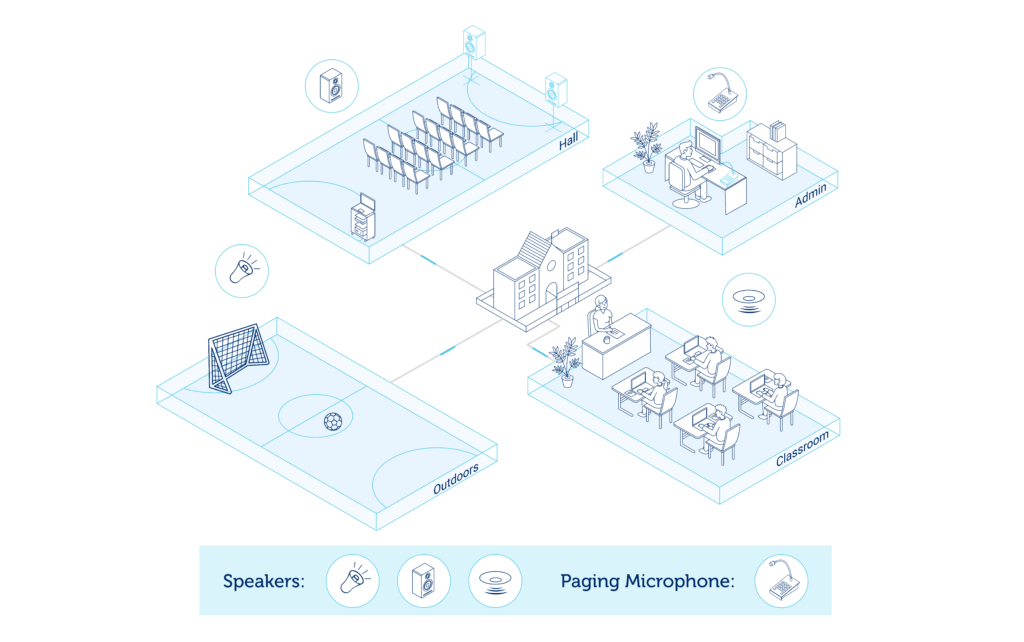
However, he told us that “scalability” is his top consideration for schools: “You want to be able to add, move or remove, a new speaker easily. It’s a good idea to take advantage of the PoE switching that is being offered as a part of the Te Mana Tuhono (Network Hardware Replacement) program offered by N4L (Network 4 Learning).
“Lots of speaker systems can be powered via your data network which saves a lot of money. Another consideration is that this system can be maintained by your IT provider. Traditionally, it has been up to the property team to look after the system, but with the trend moving more towards a network-based solution, it makes sense for IT to be able to support and maintain this.
Additionally, “I find a lot of schools are moving towards VOIP phone solutions in response to the copper network being phased out within New Zealand. This opens a lot of opportunity to implement an IP paging system and I’m also seeing trends towards more specialty labs for media as the requirements for these subjects is a fair bit higher than your average BYOD user.”
For an IP based system, JPRO representatives Eli Murray and Nicholas van Dyk recommended that schools prioritise network infrastructure:
“This is vitally important to the success of the AV system. It must be on its own standalone network with the number of switches (hops) kept to a minimum, as this is often the weakest link. For PA systems, even audio coverage, speech clarity and acoustics that avoid unnecessary sound reflections is important as well as user-friendliness.”

Moreover: “Due to the open architecture platform of some control systems, settings can be customised via iPad for paging systems if necessary. Staff enjoy the simplicity of switching between a touch panel and mixing console with the touch of a button. As the sound files are digital, schools can easily change the sound for an event, so if a school were to have a ‘retro week’ using the classic bell sound, they could easily do that.”
“Battery powered portable sound systems are also becoming more popular. These systems have built-in audio mixers and sound processing that help eliminate feedback, are remote controllable via an app and provide a true ‘all-in-one’ sound system experience. Some portable battery powered all-in-one column array speakers can carry sound farther and clearer than conventional point source or horn speakers, without the sound having to be too loud or annoying in the front. These produce good quality sound and can be used in many settings such as indoor and outdoor assemblies, sports days, and within drama departments.”
“We also recommend schools look out for options to demo an audio solution before purchasing. This allows you to know how a system will perform before it is installed.”







